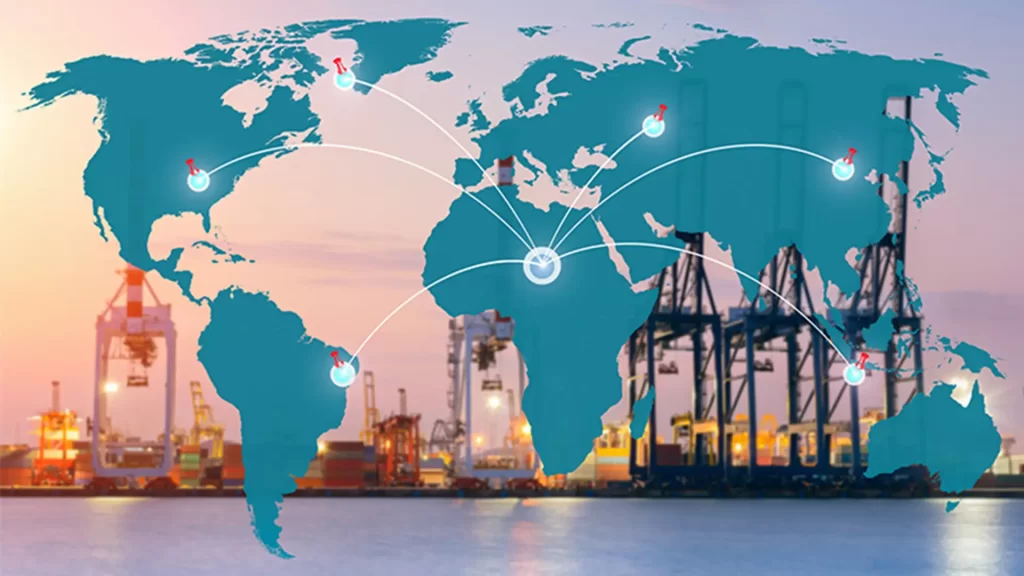Globalization has been a buzzword for decades and a powerful force shaping the world’s economies. But what does it mean? And how does it impact local economies?
The term ‘Globalization‘ refers to the process of integration and interdependence among economies worldwide. Such interdependence could happen on several fronts: technology, commerce, transportation, and more. Economies around the world grow and prosper thanks to increased global trade. But the same ‘openness’ presents challenges for local economies. We explore the factors that affect communities around the world. Whether you’re a student, a business owner, or someone interested in economic trends, this discussion is for you.
Economic benefits of globalization
Economic growth is the unique selling point (USP) for any country exploring opening its borders to the world. International trade and foreign direct investment bring economies of scale, access to new markets, and the possibility of tapping into new sources of capital. It directly works in favor of the country and helps increase productivity, lower costs, and bring higher profits for businesses. An increased economic activity almost always translates into more job opportunities for workers. Also, as global investors enter the local economy, they bring in capital, expertise, and technology. It can help spur innovation and growth in the local economies.

Positive impact of globalization on local economies
Globalization can positively impact local culture, society, and the environment. The most common benefits of globalization are:
- Flow of people and goods – Global movements of people and goods bring new perspectives, ideas, and cultural practices. The local economy gets new opportunities for collaboration and innovation. Investopedia establishes the link between globalization, GDP (Gross Domestic Product) and HDI (Human Development Index). Despite a slight decline in 2020 due to the pandemic, the world GDP growth rate for 2021 stood at 5.87%, an 8.99% increase over 2020.
- Quality and affordability of items – As local markets become a competing ground for sellers from across the globe, local consumers benefit the most. They stand to get better quality products at competitive prices.
- Giant leap in local technology – Developing countries have greatly benefitted from breakthroughs in mobile communications tech that were unavailable in their country.
- Access to new markets – Local manufacturers can market their goods to a larger audience internationally.
- Enhanced environmental sustainability – Countries can work together towards addressing global environmental challenges. Climate change and pollution are not limited to one country.
Negative impact of globalization on local economies
The golden globalization ‘coin’ also has a darker side. Its most common negative impacts include:
- Local unemployment – Perhaps, one of the biggest impacts of globalization is the potential for job loss. Businesses tend to move operations to cheaper economies, leading to unemployment in the local economy.
- Exploitation of labor – Global corporations are known to exploit cheap labor to produce products like fast fashion to get the maximum bang for their buck.
- Export fees and tariffs – As local producers try to get their goods to international markets, they face tariffs and other expenses.
- Economic disparity – Small businesses often struggle to compete with multinational corporations. This leads to income disparities within communities.
- Market volatility – The interdependence of economies exposes the local economy to external shocks and volatility. Changes in exchange rates and commodity prices can wreak havoc on local economies.
Globalization can also have adverse effects on culture and society. As western culture and values are exported worldwide, there is a risk of loss of cultural diversity. Globalization leads to substantial income gains, but such gains do not get distributed equally. Hence, leading to the potential for social and political unrest.
In conclusion, globalization has the potential to bring about economic growth and increased global trade. However, it also challenges local economies in several ways. As local economies continue to navigate the complexities of globalization, they need to work towards mitigating the negative impacts while maximizing their benefits.








































Leave a Reply